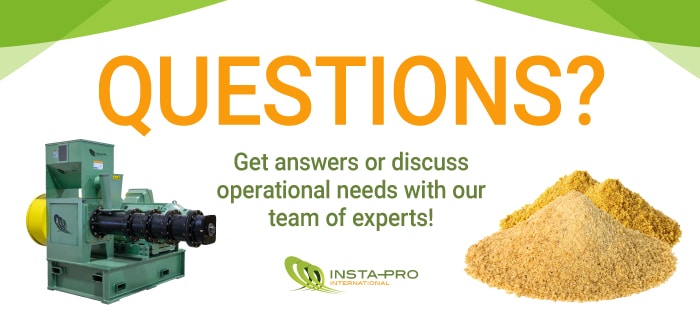What Reduced Diet Costs and More Digestible Ingredients Mean for a Layer Farm

In my previous blog, we discussed the Virginia Tech layer trial comparing layer diets using Insta-Pro ExPress® soymeal and solvent-extracted SBM. It was shown that there were significant savings of 8% per ton on the complete diet cost, while also providing a better Feed Conversion Ratio (FCR).
So, stepping back and looking at a 1,000,000-hen layer farm, what does that mean for the bottom line?
At $0.25/bird savings during 15 weeks of the laying phase alone, that is $250,000 in feed cost savings. If you feed the birds for 4 more turns of 15 weeks, you can see the potential savings over the course of a year.
Now that you know that feeding birds better quality soymeal can help, they convert better and save you money. Let us discuss how it works:
Traditionally, solvent-extracted soybean meal (SBM) is meal that has had the oil removed by using hexane solvent. Then approximately 1% of the oil soap stock is put back into the meal. The SBM is brought to the feed mill where it is mixed with the other ingredients for the formulation and then pelleted or fed in mash.
The alternative mechanical way is very similar; however, soybeans are processed through the extruder, then press to make highly digestible mechanically extracted soybean meal, and soybean oil. Those two ingredients can be used in the complete diet formulation and fed as a pellet or mash.
The equipment required consists of soybean intake, cleaning, milling, extruding, oil pressing, cooling, final hammermilling and bagging/storage. A 100 TPD plant requires approximately 30m x 30m floor space and 9m eave height.
Here is a great animation that demonstrates briefly what a 4 TPH system looks like.
If you are interested in reducing layer diet costs or learning more about processing your own ExPress® meal and would like a feasibility analysis to see what kind of ROI is possible, please reach out to us today!





